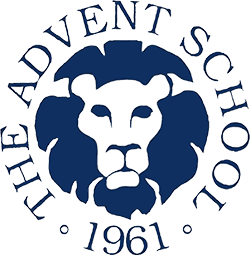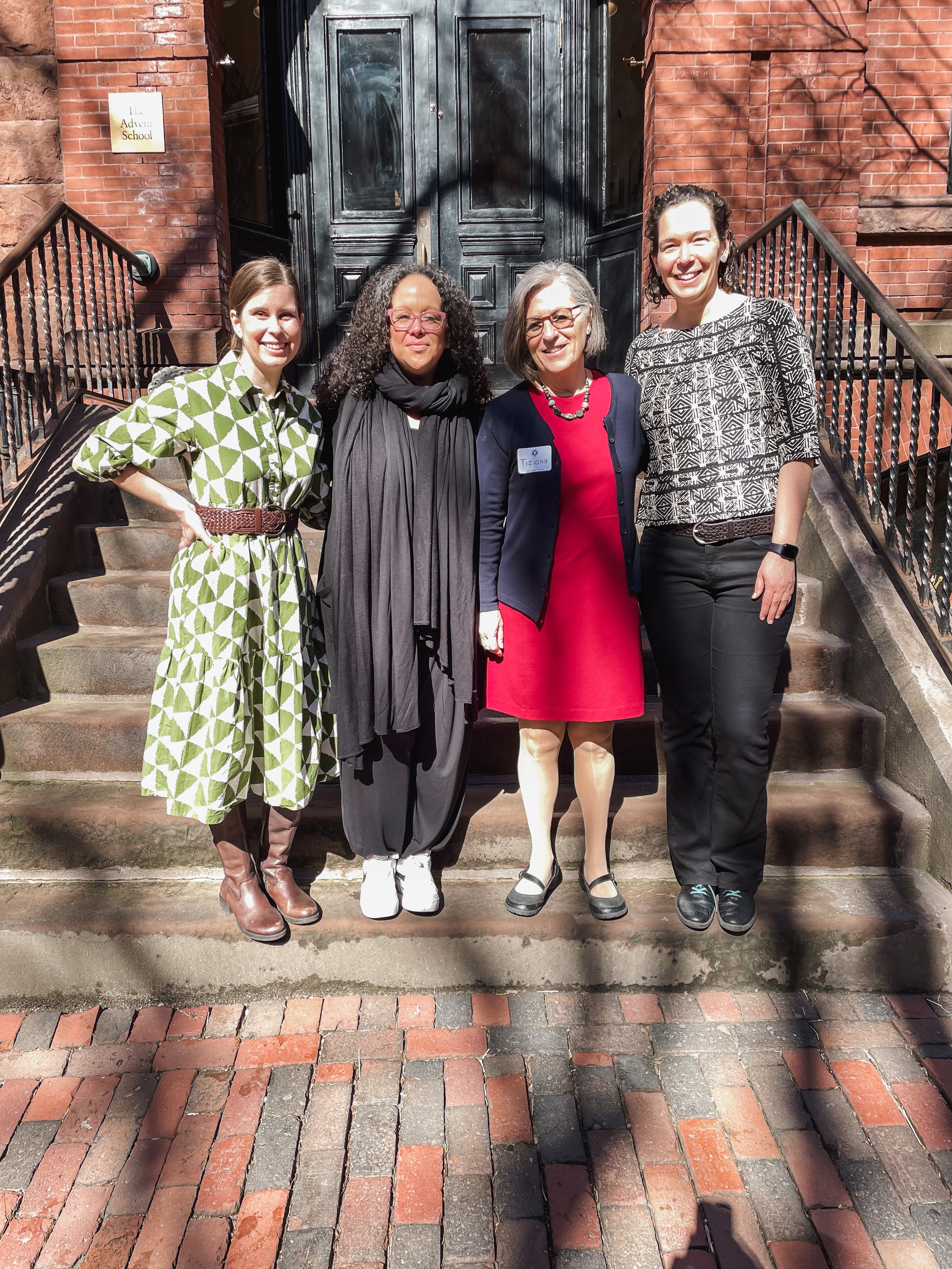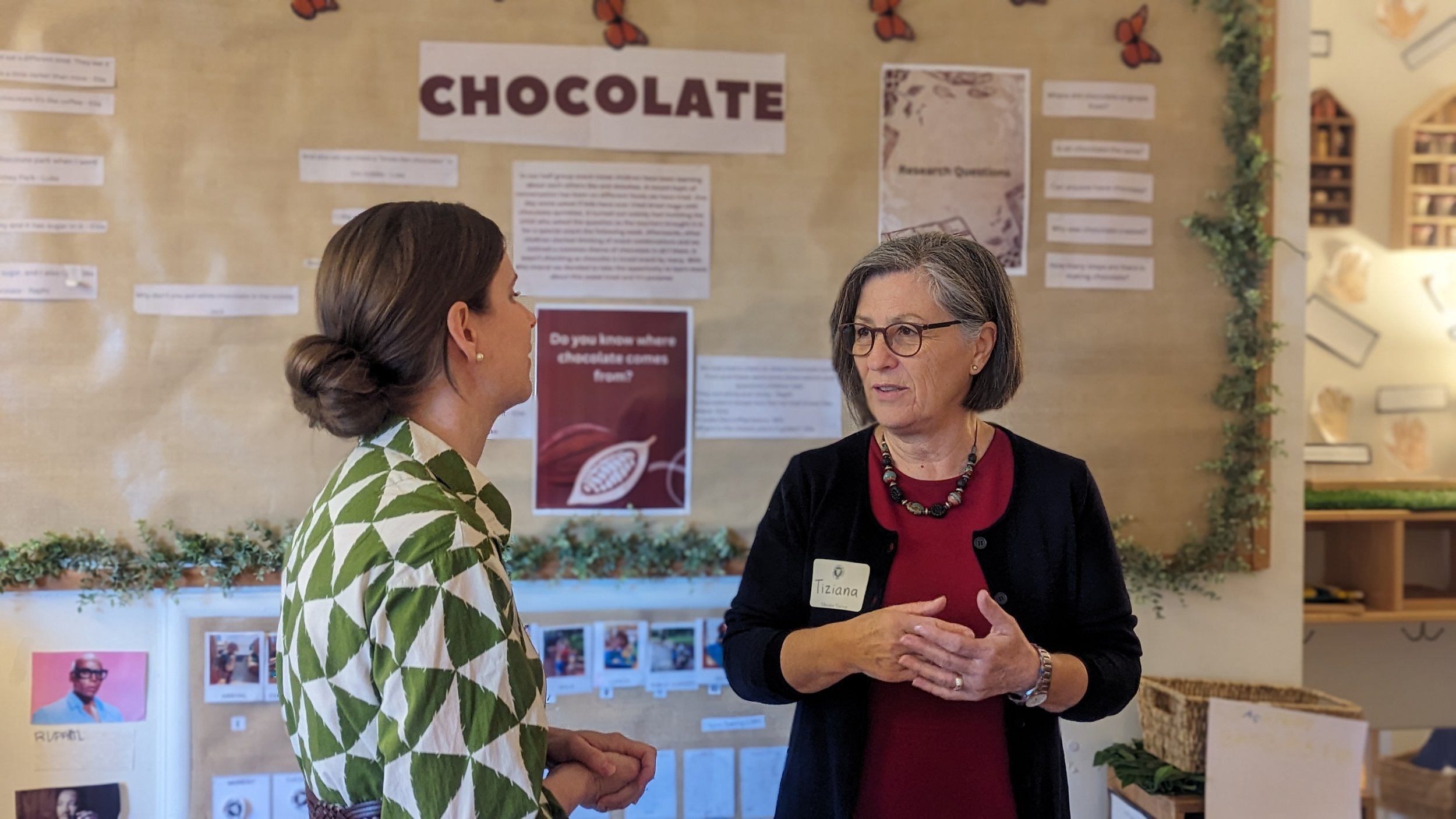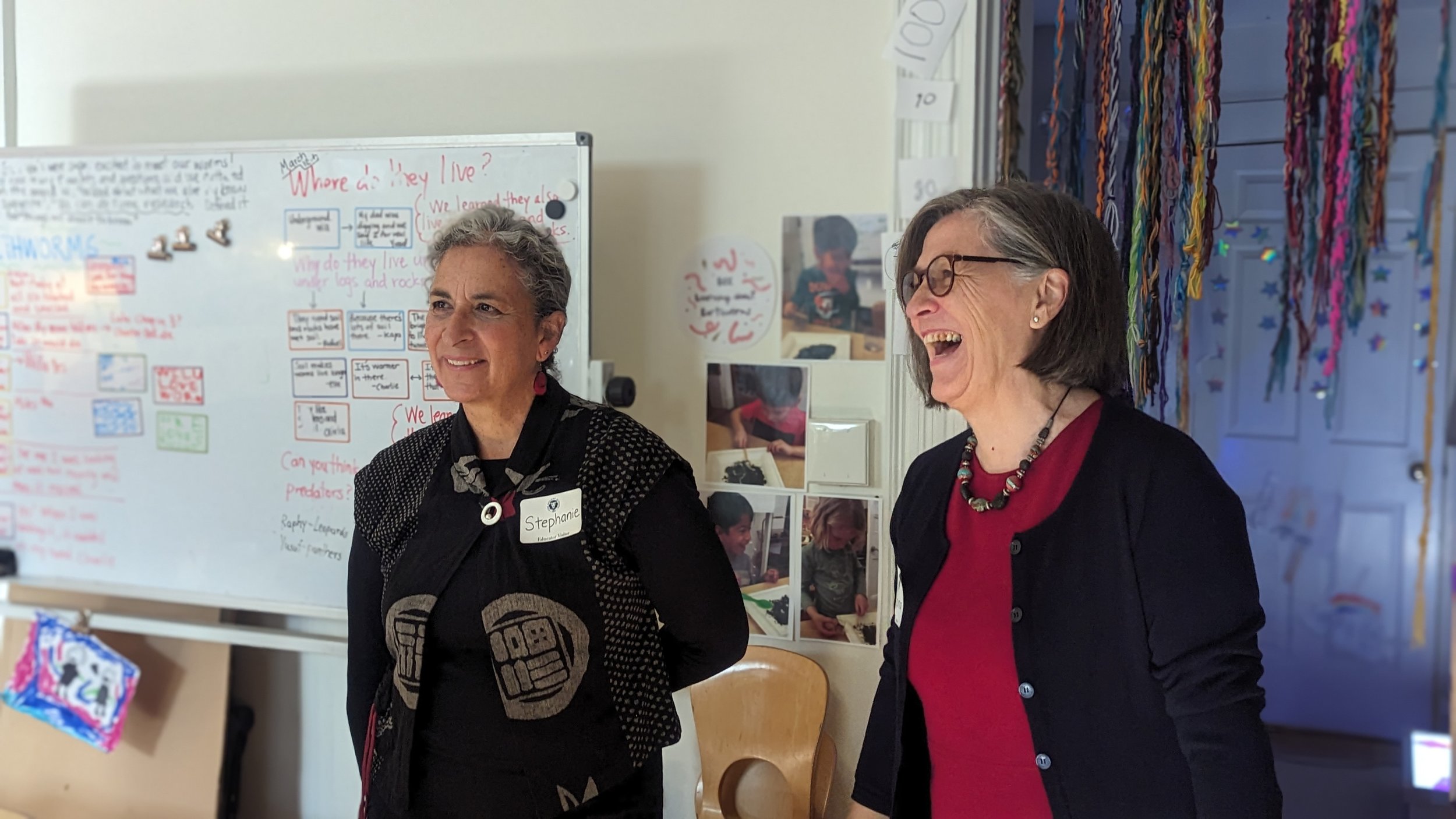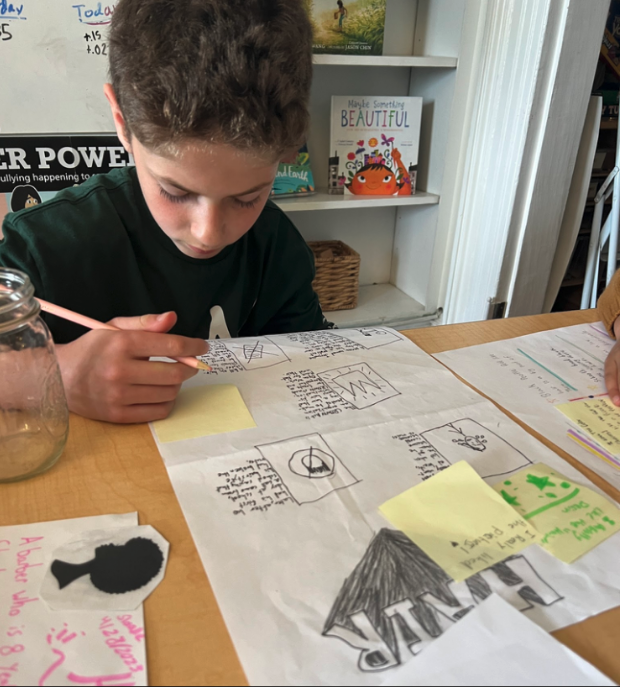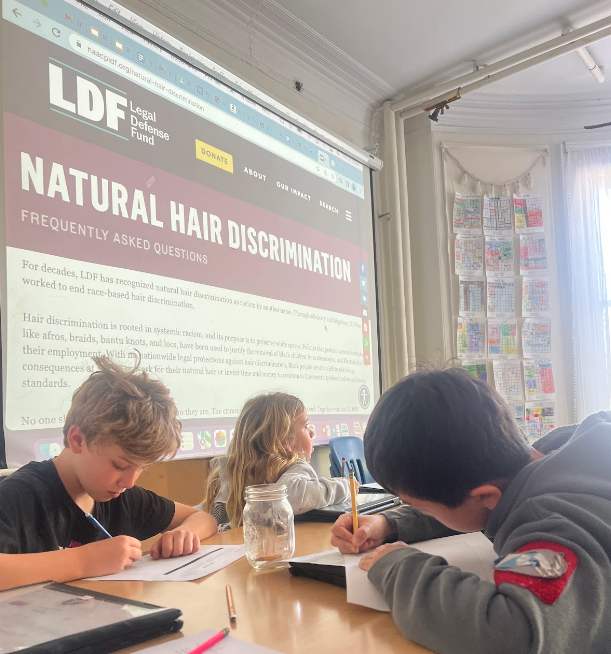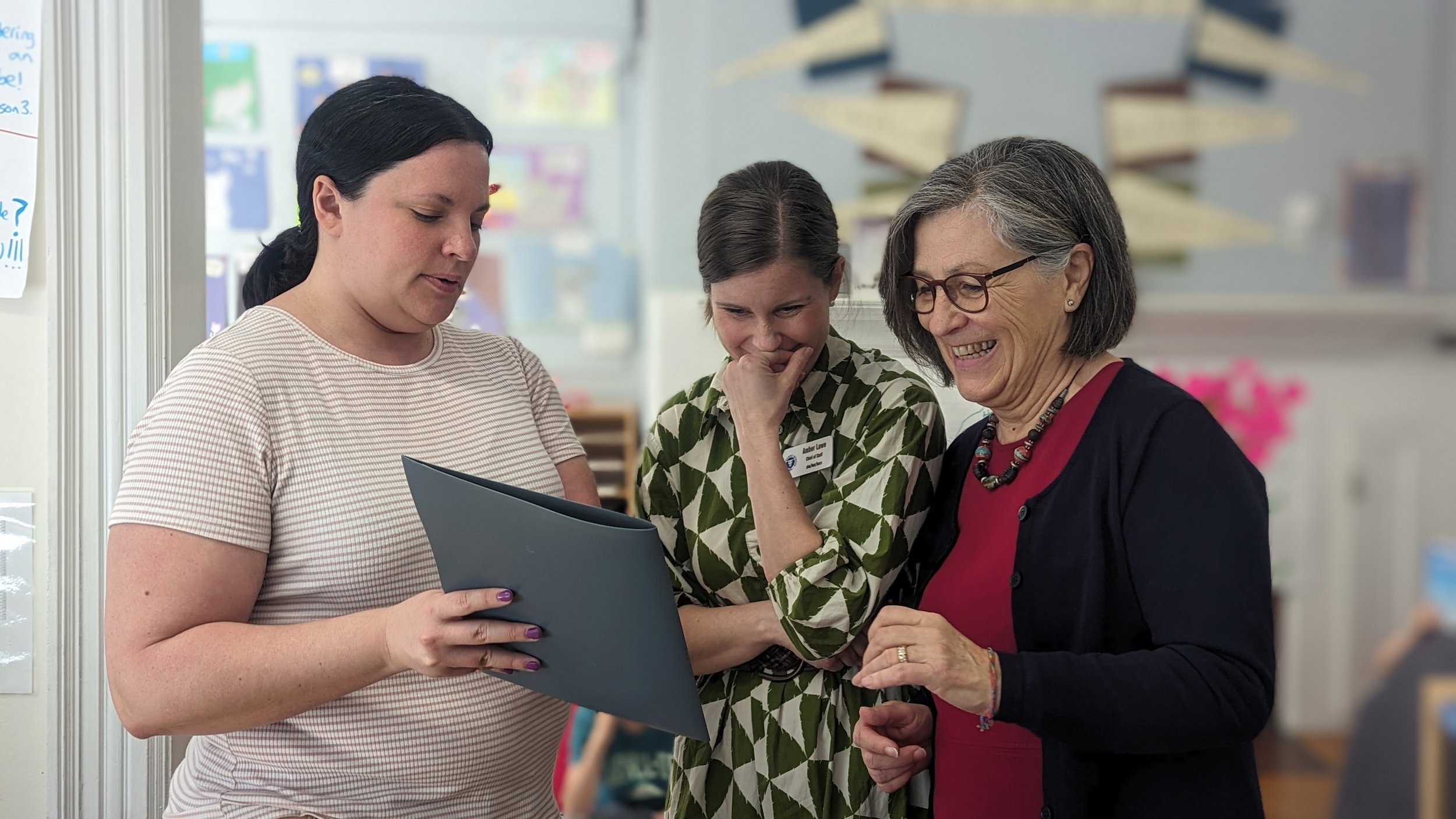Children as Citizens: Reflecting on Dr. Tiziana Filippini's Visit to The Advent School
Recently, Advent hosted pedagogista Dr. Tiziana Filippini from Reggio Emilia, Italy, for a day on campus. This unique opportunity was filled with exploration, observation, and engaging discussions about early childhood education, all centered around the distinctive principles of the Reggio Emilia approach. Dr. Filippini's visit provided a unique opportunity for educators and parents to delve deeper into these principles and consider their application in our classrooms.
Later that evening, Advent hosted Dr. Filippini for "Children as Citizens in Boston and Beyond." This conversation featured presentations by Advent faculty members and a discussion about children's rights and the future of early education. The Boston Area Reggio Inspired Network (BARIN) presented this event.
Dr. Filippini encouraged us to pay close attention to how children approach learning and to build upon that foundation.
At the event, Third Grade teacher Danielle Tye presented an emergent project from the upper grades in which the students asked, "How is hair connected to culture?" That guiding question led the students to a year-long exploration of hair types, how hair is represented in literature, hair discrimination, and anti-discrimination legislation like the CROWN Act. This project - guided by student questions and dialogue - exemplified the essence of the Reggio Emilia approach. Tye skillfully integrated various academic disciplines into the project, providing the students with a holistic and enriching learning experience. The positive feedback from educators and parents highlights the value of emergent projects in the upper grades that foster curiosity, creativity, and deep learning.
One of the key takeaways from Dr. Filippini's visit was her perspective on how we frame our approach to children's learning. People think of emergent learning or emergent curriculum as simply following the children's interests. Dr. Filippini encouraged us to pay close attention to how children approach learning and to build upon that foundation. This subtle shift in perspective emphasizes the importance of understanding each child's unique learning style and preferences, allowing educators to create more personalized and engaging learning experiences.
Another thought-provoking idea Dr. Filippini shared was the concept of decision-making within the classroom. Rather than relying solely on voting to settle disagreements or make choices, she advocated for a more collaborative approach of "coming to an agreement." Children learn to articulate their ideas, engage in respectful debate, and ultimately reach a collective agreement by engaging in meaningful dialogue. A conversation fosters critical thinking and communication skills and lays the groundwork for democratic principles, where everyone's voice is valued and heard.
As parents and educators, embracing the Reggio Emilia approach principles can revolutionize how we support children's learning and development. We create dynamic learning environments where every child can thrive by valuing children's unique perspectives, fostering collaborative decision-making, and embracing emergent projects.
The Advent School is grateful to Dr. Tiziana Filippini for sharing her insights and inspiration with us. We look forward to continuing our journey of exploration and growth in early childhood education. Let's nurture a generation of children to learn with passion, act with courage, and change the world.

